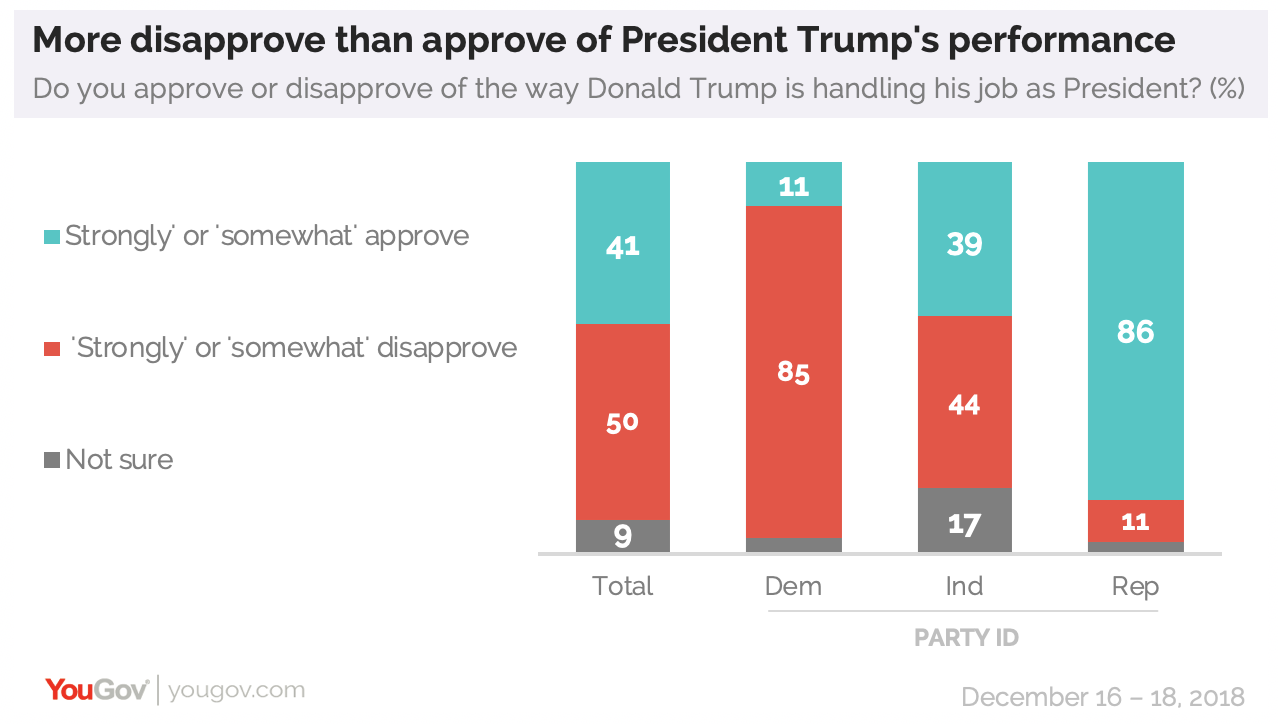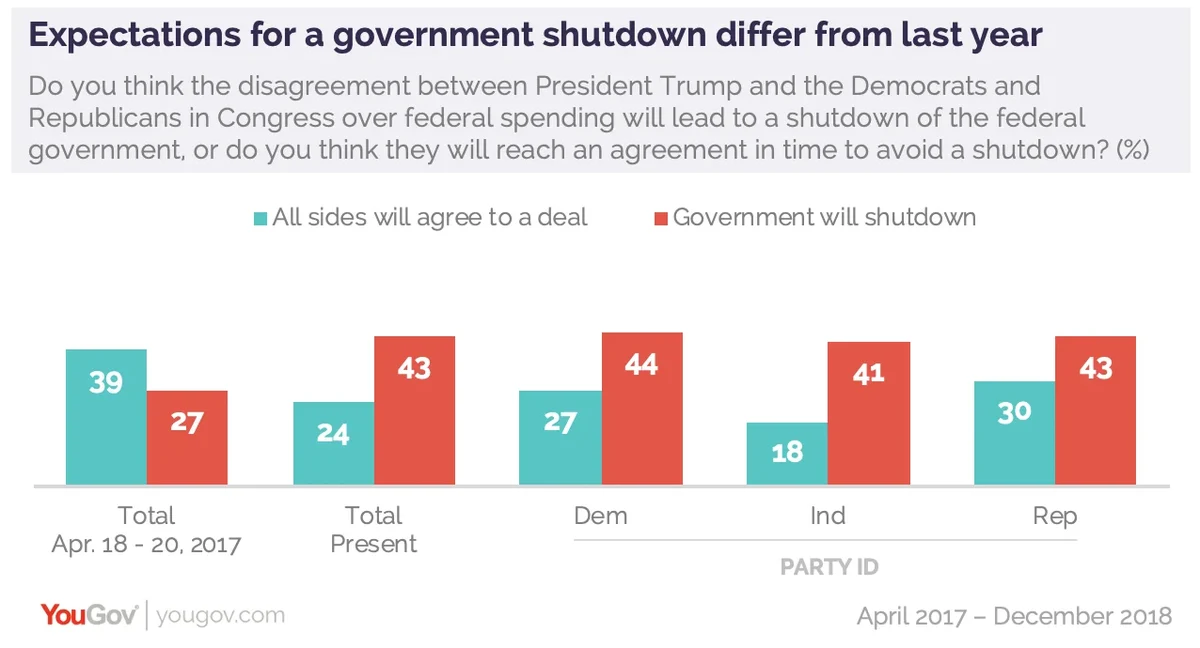Compared to last year’s potential shutdown, more expect a shutdown to occur this time around
Will there be a government shutdown? By nearly two to one, Americans expect there will be one. And it’s a subject that gets bipartisan agreement. In the latest Economist/YouGov Poll, only one in four think the battling sides will come to an agreement by the Friday deadline. Republicans are a little more hopeful, but still think a shutdown will come.
[The main issue over the weekend when the poll was conducted was funding for a wall along the country’s border with Mexico. While the President pulled back his demand for $5 billion for the wall on Tuesday, there are still outstanding budgetary issues Congress must resolve by Friday.]
This is a different expectation from the opinions American held in April 2017, when there was also a threat of a government shutdown, occurring 100 days into the Trump Administration. Then, by 39% to 27%, the pubic expected there would be a compromise (although Democrats were more worried than Republicans that would happen). In the end, the government did not shut down then.
But positions have clearly hardened: two in three Democrats say they would blame President Trump if a shutdown occurs (and another 9% would blame Republicans in Congress). Six in ten Republicans would put all the blame on Democrats in Congress. One in ten blame the President. Only 16% overall would distribute blame all around.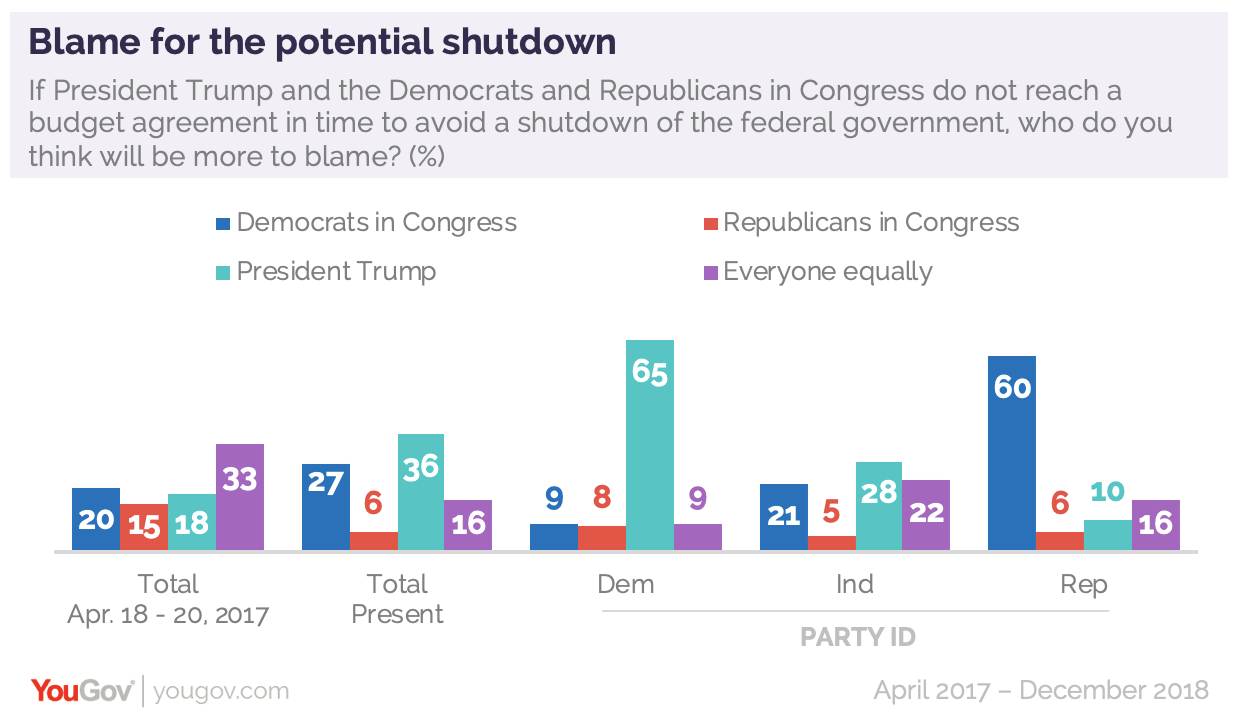
Republicans are more likely than Democrats to spread the blame, but independents are even more likely to blame everyone. Back in 2017, one in three Americans thought everyone should be blamed for a shutdown.
This year’s potential shutdown news had a reality show highlight – the televised Oval Office meeting and confrontation between the President and Democratic Congressional leaders, Senate Minority Leader Chuck Schumer and House Minority Leader (and expected new Speaker) Nancy Pelosi. 41% of Americans said they had heard “a lot” about that meeting, with Republicans and Democrats equally attentive. For many, and for most of those who heard a lot about the meeting, it was a two-person duel. Asked who had performed “the best,” poll results indicate a battle between the President and the incoming Speaker.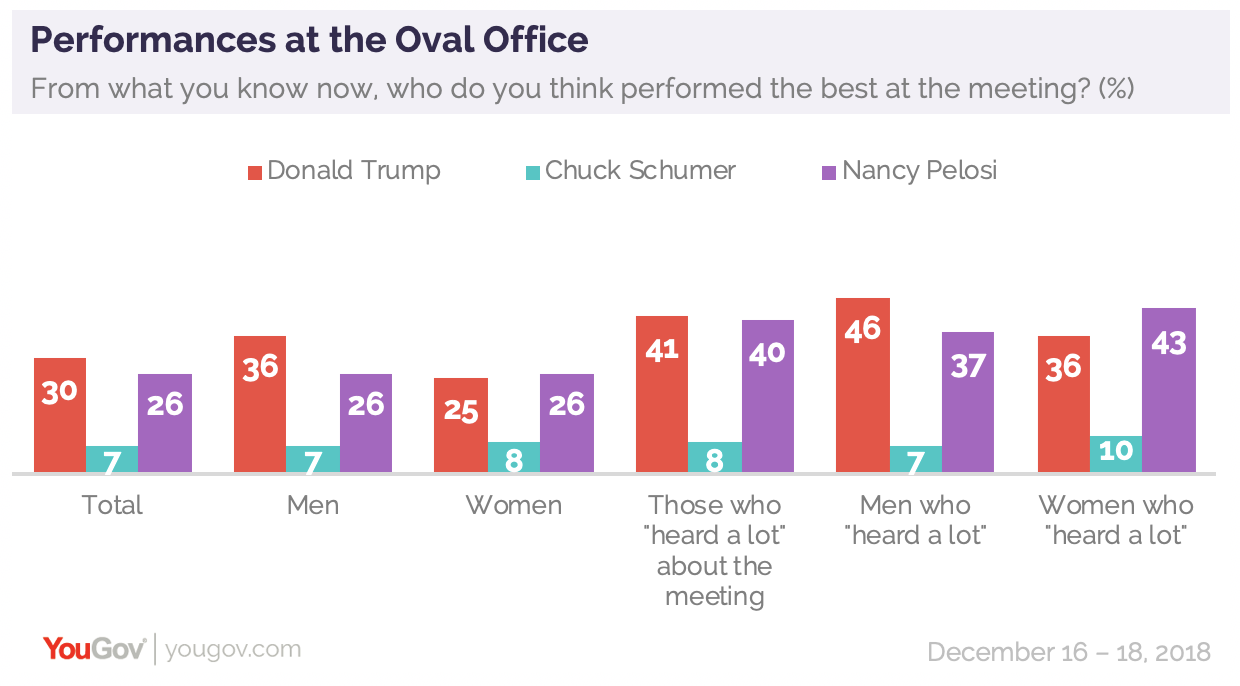
About as many overall named one of the two Democrats as cited President Trump when asked who had done best, but among all women and among those who were paying the most attention, Pelosi and the President seemed equally matched. Among women who had heard a lot about the meeting, Pelosi came out the winner. Men favored President Trump.
There is more concern about a possible shutdown among those who heard a lot about the Oval Office meeting: by more than two to one, 56% to 23%, this group believes this time a shutdown will happen.
Americans say they want both their congressperson and their President to compromise in order to get things done. Republicans have shifted recently on this, however – and they have shifted in different directions when indicating what they want from their Congressional Representative and from the President. Compared to past years, Republicans have moved to favoring compromise in Congress, but opposing compromise from this President.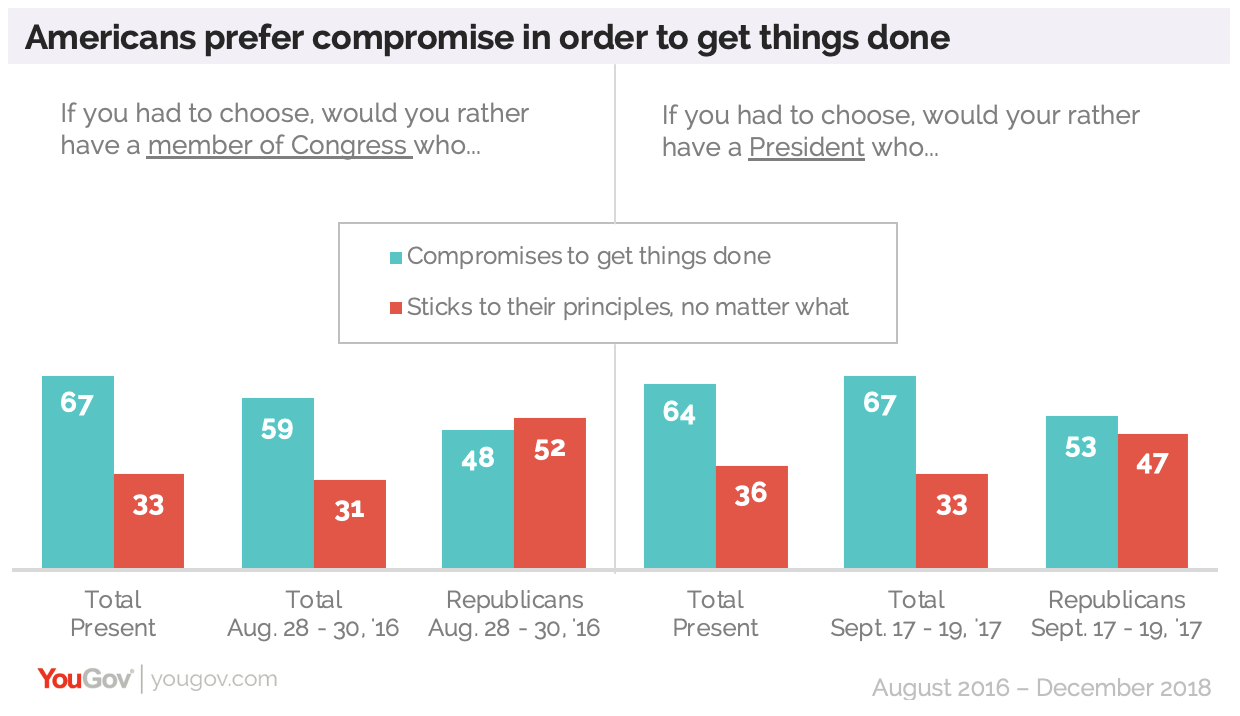
On both questions, Democrats and Independents favor compromise by wide margins.
Democrats seem satisfied with their leaders in Congress. They approve of how both Nancy Pelosi and Chuck Schumer are handling their jobs by nearly four to one, and most want Pelosi to resume the role of Speaker when Congress returns in January. 52% of Democrats support Pelosi becoming Speaker, while 18% oppose her.
The Republican Congressional leadership (current and future) get more mixed reactions from those in their party. Many Republicans don’t have an opinion of House Majority Leader Kevin McCarthy, and while Senate Majority Leader Mitch McConnell gets better than two to one ratings from Republicans, the party is divided when it comes to outgoing Speaker Paul Ryan.
Republicans are far more likely to approve of President Trump’s performance than they are to approve of their Congressional leaders. He is clearly the GOP party leader. Though just 41% of the country approves of how he is handling the job of President (about where his approval rating has been for most of his Presidency), 86% of Republicans approve – nearly eight times the percentage who do not. Democrats, however, are the upside-down mirror image when it comes to their assessment of the President.